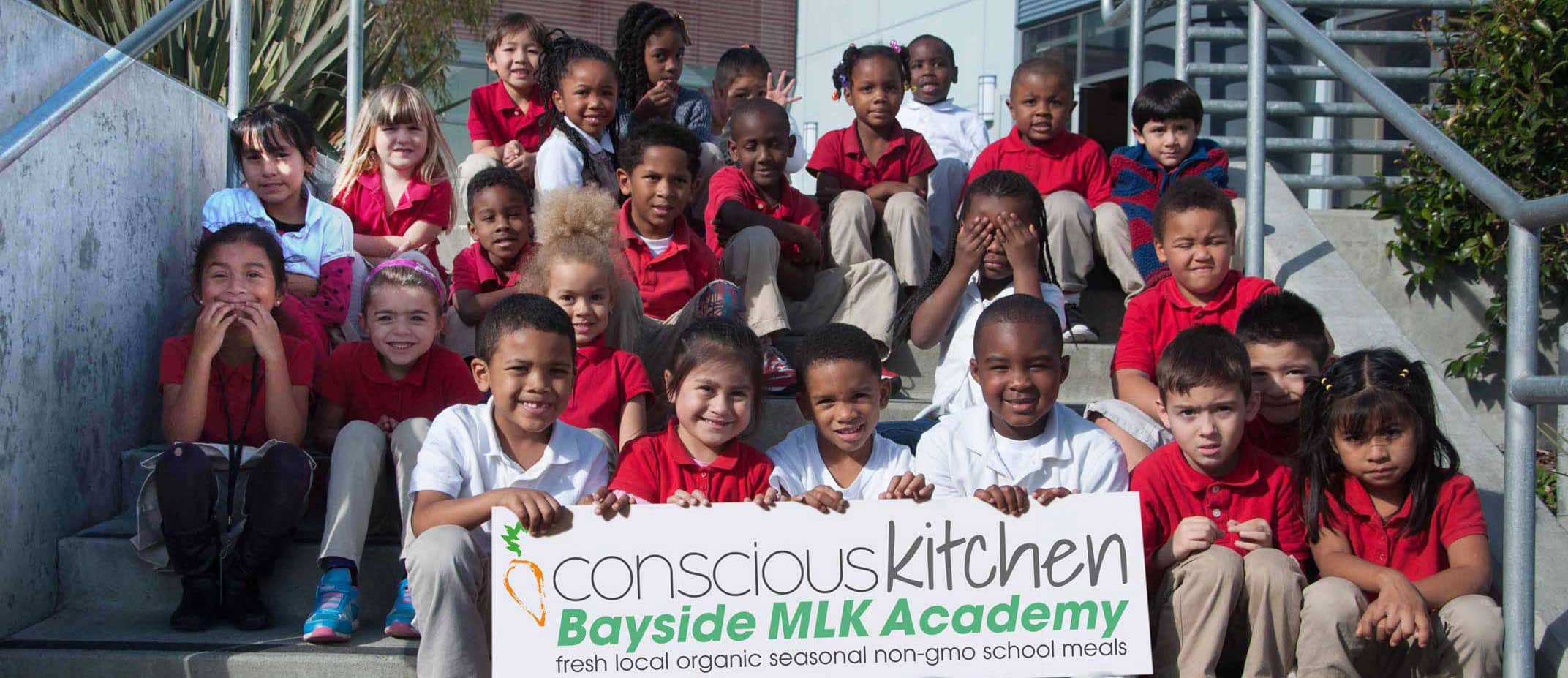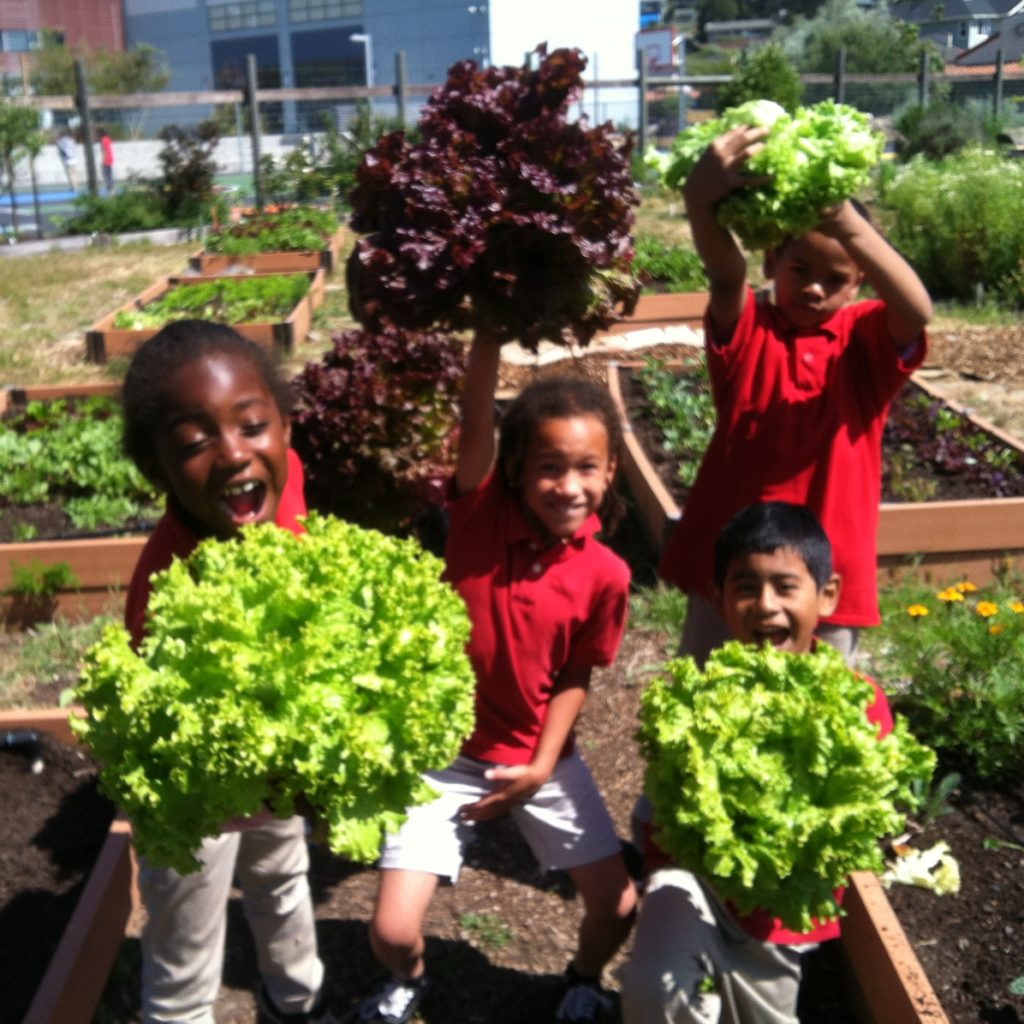Mission
The goal of Conscious Kitchen is to address food equity, education, and access by shifting the paradigm around school food service, while cultivating a local, ecological food system, and building nutrition literacy into meals.
Through a collaborative, replicable approach, Conscious Kitchen partners with schools and communities to break the cycle of packaged, overly processed food, transitioning to chef-prepared, scratch-cooked meals created in low-waste kitchens, based on six foundational attributes: fresh, local, organic, seasonal, nutritious and zero waste.
Once built, schools own and operate on-site Conscious Kitchens, hubs for community resilience.


Values
We believe access to healthy food is a right, not a privilege. By providing all children with healthy, organic food in school and community settings, Conscious Kitchen seeks to overcome health disparities that take an unfair toll on children living in low-income households, while reducing the stigma often associated with National School Lunch Program participation. School supported ecological agriculture strengthens farms, ranches, soil and urban and rural communities, while deepening school and community connection with the social and cultural relevance of food.
WHAT SETS US APART
CONSCIOUS KITCHEN IS DESIGNED TO BUILD CAPACITY IN SCHOOLS
Serve fresh, local, organic, seasonal, nutritious food
Purchase within USDA budget and exceed nutritional guidelines
Daily scratch-cooked meals from an on-site kitchen
Dedicated head chef and staff
Kitchens partner with local community chef
Partnerships with organic farmers and purveyors
Strong commitment to and education around zero waste
Broad based community involvement
Leadership development through CK Ambassadors Program
Food literacy through garden, nutrition & culinary curriculum
Impact
Conscious Kitchen has transformed culture in the dining hall, throughout schools and across communities. Teachers report improved attention in class, elevated attendance, fewer headaches and stomachaches, heightened leadership skills exhibited by students, and children treating one another with respect, kindness, and open communication. Data shows significantly less food and packaging waste, increased consumption of fruits and veggies, less thirst and hunger, as well as a more equitable school food environment (reduced stigma associated with the school meal program).


Our Story
In the fall of 2013, Sausalito-based non-profit, Turning Green launched Conscious Kitchen as a pilot project at Bayside Martin Luther King Jr Academy, the sole K-8 public school in the Sausalito Marin City School District. In partnership with Executive Chef Justin Everett of Cavallo Point Lodge and the school district, we set out to reimagine school food and break the cycle of unhealthy, pre-packaged, processed, heat-and-serve meals.
COMMITMENT
We believe in environmental and social justice. We work to achieve a healthy, just, resilient future for all. We reaffirm that everyone deserves respect and equal treatment. We rise in solidarity with Black, Indigenous and People of Color (BIPOC) to combat racism, injustice and hate. We pledge to engage in, advance and deepen anti-racism across all aspects of our programming, resources, personnel, and communications to ensure that a diverse unity of voices are reflected, centered and amplified — and that our constituency of young leaders feel accepted, honored, seen, heard and empowered. We continue to dedicate time to listening to, learning from, and showing up with and for BIPOC communities with open ears, minds, arms and hearts. We can and will do more to rise as strong, proactive allies who use our platforms to dismantle the racist barriers which exist for BIPOC individuals and communities, those disproportionately affected by systemic injustice. There can be no climate justice, health justice, education justice or justice of any kind without racial justice.

